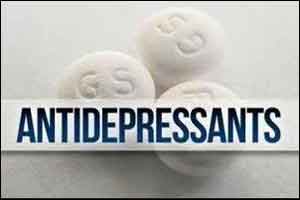- Home
- Editorial
- News
- Practice Guidelines
- Anesthesiology Guidelines
- Cancer Guidelines
- Cardiac Sciences Guidelines
- Critical Care Guidelines
- Dentistry Guidelines
- Dermatology Guidelines
- Diabetes and Endo Guidelines
- Diagnostics Guidelines
- ENT Guidelines
- Featured Practice Guidelines
- Gastroenterology Guidelines
- Geriatrics Guidelines
- Medicine Guidelines
- Nephrology Guidelines
- Neurosciences Guidelines
- Obs and Gynae Guidelines
- Ophthalmology Guidelines
- Orthopaedics Guidelines
- Paediatrics Guidelines
- Psychiatry Guidelines
- Pulmonology Guidelines
- Radiology Guidelines
- Surgery Guidelines
- Urology Guidelines
Vortioxetine improves SSRI-Induced Sexual Dysfunction

The U.S. Food and Drug Administration (FDA) approved a supplemental new drug application (sNDA) for TRINTELLIX® (vortioxetine), a prescription medication currently used for adults with the major depressive disorder (MDD).
On the basis of findings of the study, the vortioxetine(TRINTELLIX) prescribing information now includes head-to-head clinical study data that demonstrated superiority to a commonly-used selective serotonin reuptake inhibitor (SSRI), Lexapro® (escitalopram) in improving treatment-emergent sexual dysfunction (TESD). This is the first time an antidepressant has included data of this type in its labelling. TESD can affect any aspect of the sexual response cycle including desire, arousal, and orgasm.
Read Also:Nerve stimulation therapy improves sexual dysfunction in women
In the 8-week, randomized, double-blind study, patients with depression who had TESD while taking an SSRI (eg, paroxetine, sertraline or citalopram) were switched to Trintellix or escitalopram, due to SSRI-induced sexual dysfunction.
Results showed treatment with Trintellix led to statistically significant improvement vs escitalopram from baseline to week 8 as measured by mean Change in Sexual Functioning Questionnaire short form (CSFQ-14) Total Score (8.8 vs 6.6). In addition, both study drugs maintained prior improvement in depression based on the overall score on standardized depression rating scale. Moreover, in clinical studies, TRINTELLIX had no significant effect on body weight as measured by the mean change from baseline in 6-8 week placebo-controlled studies.
The most commonly observed adverse events in MDD patients treated with TRINTELLIX in 6-8 week placebo-controlled studies (incidence greater than or equal to 5 percent and at least twice the rate of placebo) were nausea, constipation, and vomiting.
Read Also: Prediabetes may lead to sexual dysfunction in men
"Sexual dysfunction is one of the most common and bothersome side effects patients with depression struggle with when prescribed an SSRI," said lead study investigator, Dr. Anita Clayton. "We designed the study to specifically look at these troublesome side effects. Changing to a medication with potentially fewer sexual side effects, while not losing progress in treating depression, provides an important option for patients with depression,” she added.
The recommended starting dose of TRINTELLIX is 10 mg once daily without regard to meals. The dose should then be increased to 20 mg/day, as tolerated because higher doses demonstrated better treatment effects in trials conducted. A dose decreases down to 5 mg/day may be considered for patients who do not tolerate higher doses.

Disclaimer: This site is primarily intended for healthcare professionals. Any content/information on this website does not replace the advice of medical and/or health professionals and should not be construed as medical/diagnostic advice/endorsement or prescription. Use of this site is subject to our terms of use, privacy policy, advertisement policy. © 2020 Minerva Medical Treatment Pvt Ltd